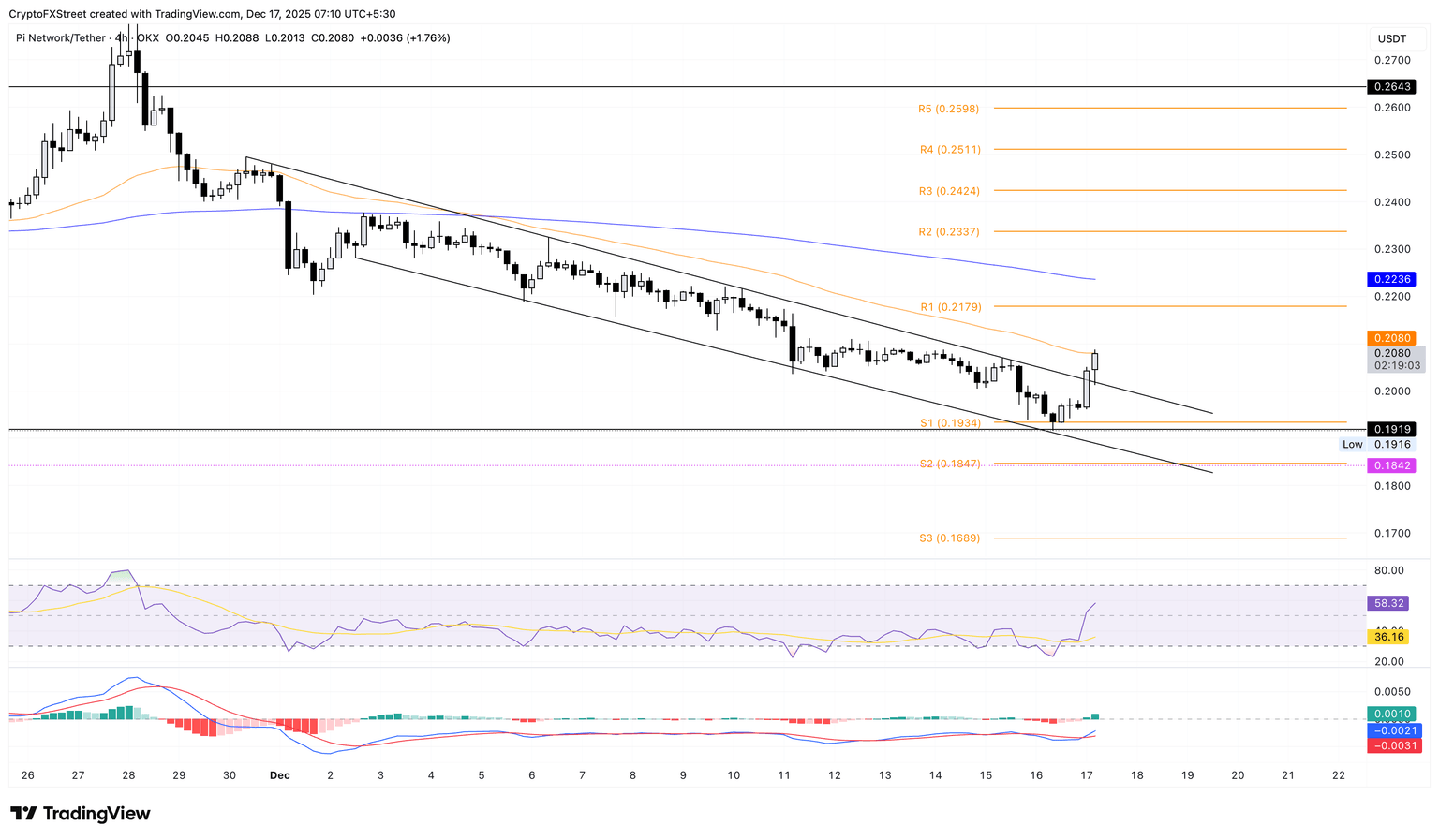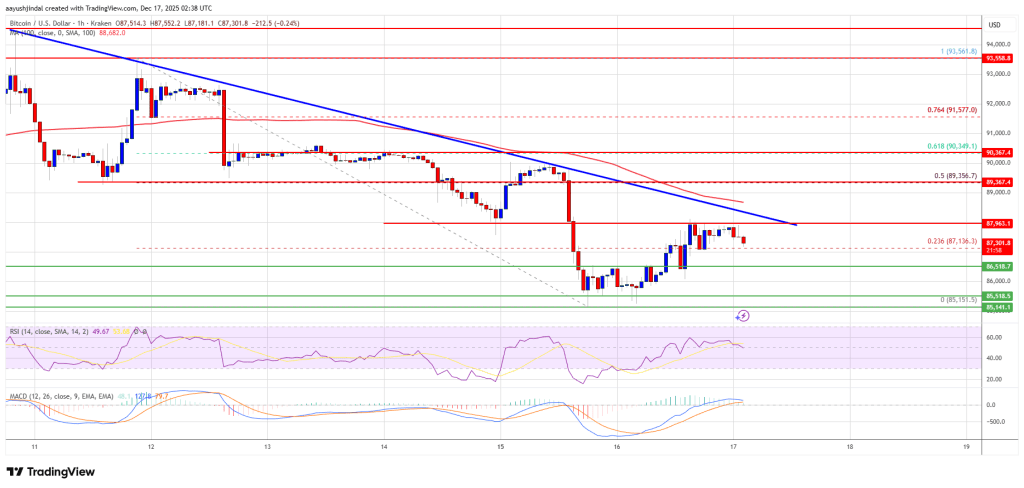Solana's PSG1 Console: A Strategic Catalyst for Blockchain Gaming Adoption
- Solana's PSG1 console integrates Web3 features like hardware wallets and NFT support, aiming to bridge blockchain gaming's accessibility gap. - Pudgy Penguins collaboration creates NFT-driven incentives, linking console ownership to token economics and developer ecosystem growth. - Priced at $329, the PSG1 outcompetes Sui's SuiPlay0X1 by combining affordability with Solana's established developer network and DeFi dominance. - Investors see PSG1 as a $1T market catalyst, leveraging hardware adoption to dr
The blockchain gaming industry has long struggled to bridge the gap between decentralized innovation and mainstream appeal. Solana's recent launch of the PSG1 handheld console, however, marks a pivotal shift in this narrative. By embedding Web3 functionality into a consumer-friendly device, Solana is not merely selling hardware—it is redefining the economics of gaming itself. For investors, this represents a rare convergence of technological ambition and market potential, with the PSG1 positioned as a strategic catalyst for blockchain gaming's next phase of growth.
The PSG1: A Hardware-Driven Web3 Ecosystem
The PSG1 is more than a gaming console; it is a distribution hub for Solana's decentralized applications (DApps) and a secure interface for managing crypto assets. Its built-in hardware wallet, rear-mounted fingerprint sensor, and support for Solana-based NFTs address critical pain points in blockchain gaming: security, usability, and accessibility. By integrating these features into a $329 device—significantly cheaper than the rebranded Saga smartphone—Solana is democratizing access to Web3 gaming.
The console's technical specifications further underscore its ambition. An octa-core ARM processor, 8GB of RAM, and a 128GB storage capacity ensure it can handle both retro-style games and modern blockchain-native titles. This versatility is crucial, as it allows developers to experiment with decentralized mechanics such as in-game asset ownership, cross-game interoperability, and play-to-earn models. The PSG1's role as a “distribution hub” is not just metaphorical; it is a physical gateway for developers to reach a broader audience, accelerating the adoption of Solana's ecosystem.
NFT Partnerships and Economic Incentives
Play Solana's collaboration with Pudgy Penguins exemplifies the company's strategy to leverage NFT partnerships for community engagement and value creation. The exclusive PSG1 edition, priced at $349, ties ownership of the console to the broader Solana NFT economy. For every unit sold, the company commits to buying and burning $PENGU tokens, a move that injects scarcity and utility into the token's economics. This approach mirrors the “tokenomics” strategies seen in successful NFT projects, where scarcity and utility drive demand.
Moreover, the limited NFT collection offering early access to 2,000 holders creates a loyal user base invested in the PSG1's success. Such strategies are not merely marketing gimmicks; they are foundational to building a self-sustaining ecosystem. By aligning incentives between developers, players, and investors, Solana is fostering a network effect that could outpace competitors relying solely on software-based solutions.
Competing in the Web3 Hardware Space
The PSG1 enters a market where blockchain gaming hardware is still nascent but rapidly evolving. Mysten Labs' SuiPlay0X1, for instance, aims to challenge Solana's dominance by leveraging the Sui blockchain's high throughput and low fees. However, Solana's first-mover advantage in gaming DApps and its established developer community provide a significant edge. The PSG1's lower price point and focus on user experience also position it to capture a broader demographic, including casual gamers who may be skeptical of crypto's complexities.
A comparison of Solana's and Sui's token price trajectories reveals Solana's stronger market position. While both blockchains have seen volatility, Solana's ecosystem has consistently attracted higher developer activity and user growth, as evidenced by its dominance in decentralized finance (DeFi) and NFT platforms. The PSG1's launch could further amplify this trend by creating a tangible use case for Solana's blockchain beyond speculative trading.
Investment Implications
For investors, the PSG1 represents a defensible long-term play in the $1 trillion blockchain gaming market. The console's success hinges on three factors:
1. Adoption Rates: If the PSG1 achieves mass adoption, it could drive demand for Solana-based games, NFTs, and tokens, creating a flywheel effect.
2. Developer Ecosystem: A thriving developer community will ensure a steady pipeline of innovative DApps, reinforcing the console's value proposition.
3. Network Effects: The integration of hardware wallets and NFT partnerships could lock users into Solana's ecosystem, making it harder for competitors to displace.
Investors should consider positioning in Solana's native token (SOL) and companies building complementary infrastructure, such as NFT marketplaces and game studios. The PSG1's potential to mainstream blockchain gaming also makes it a compelling case study for broader Web3 adoption, with implications extending beyond gaming into sectors like virtual real estate and decentralized identity.
Conclusion
Solana's PSG1 is not just a product—it is a strategic move to anchor blockchain gaming in the physical world. By merging hardware innovation with Web3's economic model, Solana is addressing the industry's most persistent challenges. For investors, this represents an opportunity to bet on a platform that is not only technologically ambitious but also economically resilient. As the $1 trillion market for blockchain gaming continues to evolve, the PSG1 may well prove to be the catalyst that transforms speculation into substance.
Disclaimer: The content of this article solely reflects the author's opinion and does not represent the platform in any capacity. This article is not intended to serve as a reference for making investment decisions.
You may also like

Bitcoin price regroups after decline—Is a directional breakout imminent?

Two main reasons why the current decline of ONDO is only temporary.